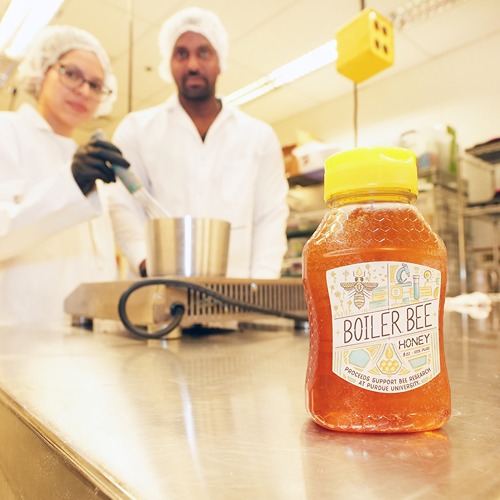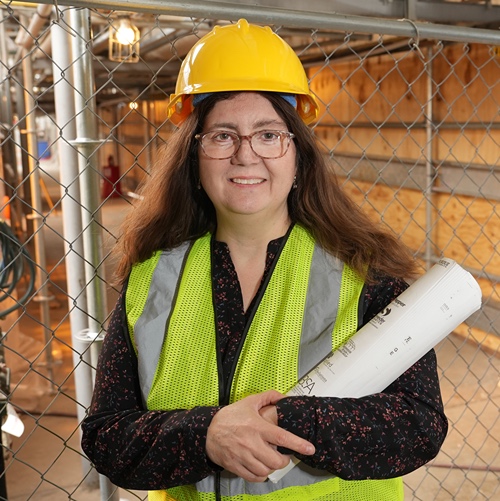This past January the USAID John Ogonowski and Doug Bereuter Farmer-to-Farmer (F2F) program in Trinidad and Tobago began transitioning back to in-person volunteer assignments. Almost two years ago, Purdue University’s International Programs in Agriculture (IPIA) and Cooperative Extension Service in collaboration with the University of West Indies at St. Augustine (UWI) announced an F2F program would be implemented in Trinidad and Tobago over the next three years. A United States Agency for International Development (USAID) funded program, F2F provides technical assistance from U.S. volunteers to farmers, farm groups, agribusinesses, and other agriculture sector institutions in developing and transitional countries.
Purdue Extension’s, Cora Carter, one of the first to volunteer for the Purdue F2F program, was forced to pivot to a virtual platform. Since the COVID-19 pandemic travel limitations, the F2F program has delivered almost 30 virtual programs to support Trinbagonian farmer groups and institutions. The first in-person assignment, completed in January, focused on providing hands-on training in sheep production to Vision on Mission (VOM), an organization that provides rehabilitation services, empowerment, life skills, employment training and development in agriculture and other areas to individuals in need of re-integration into society.
VOM operates a large vegetable farm and has had poultry in the past. The organization wanted to expand its farming enterprise, and sheep are a common livestock in Trinidad and Tobago.
“Not knowing what to expect from a volunteer on the first ever in-country mission, we were all pleasantly surprised with the knowledge, skills, and adaptability of Cora,” said Wayne Ganpat, former UWI Dean of the Faculty of Food and Agriculture and F2F Country Director. “With calmness and efficiency, she discharged her responsibilities to the VOM group. If this is an example of the future in-country volunteers work ethic, the project outcomes will surely be achieved.”
Carter was an ideal participant for this assignment because she has been raising hair sheep since she was 12 years old. With the plan to travel to complete the in-person portion of the assignment, she initiated the project with VOM by teaching five virtual sessions focused on basic sheep production, sheep genetics, sheep nutrition, sheep reproduction and sheep health.
“Cora’s professionalism was greatly appreciated” said Korrie John, VOM Farm Manager and F2F participant. “She was passionate, down to earth, and created an interactive learning environment with our clients. She played a pivotal role in helping our organization develop our very first sheep unit on our farmstead in Trinidad.”
Carter taught animal handling skills, including catching, holding, haltering, and leading, as well as animal care like hoof trimming and deworming, and potential hazards in the spaces the animals would be housed. To learn about local sheep production practices, she had the opportunity to visit the UWI – St. Augustine research farm. One of her favorite experiences was meeting with the UWI sheep farm manager and discussing the overall differences and similarities of sheep production in Trinidad and Tobago and the United States, which helped her create a basis on where to start with training local individuals on sheep production.
“I was able to learn about common products or procedures used in the US that are simply unavailable or too expensive for the average sheep farmer in Trinidad and Tobago,” said Carter. “This is something we have to learn and re-learn, every time we are doing international development work.”
As the F2F program transitions back to in-person assignments, safety, transparency, and clear communications are key considerations. In March, two more in-country volunteer assignments were completed, Alternative and Low-Cost Irrigation Methods in Tobago, and Commercial Poultry Production-Chicken Egg Production in Trinidad.
“This experience has been extremely rewarding. I always enjoy working with individuals who are interested and excited to learn more about raising sheep. One of the clients told me, “I can’t wait to start my own sheep farm soon.” – Cora Carter, Ag and Natural Resources Educator, Purdue Extension – Bartholomew County
If you’re interested in volunteering for an in-country assignment, visit the Purdue F2F page for a complete list of opportunities and to apply.





